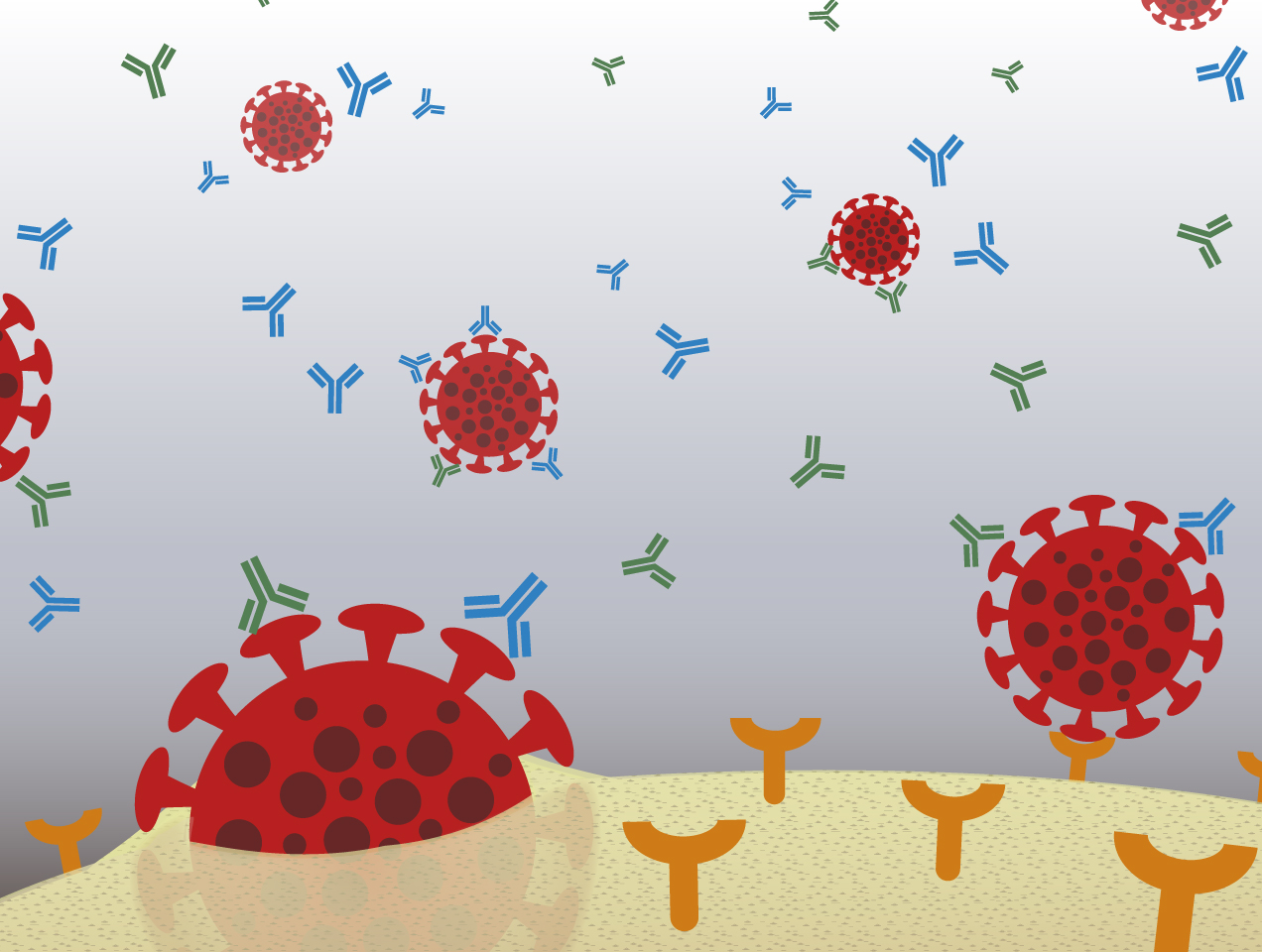Research News
Nov 13, 2023
- Veterinary Science
Your reaction matters: the role of antibodies in Covid-19 response
New insights on how individual immune responses to the SARS-CoV-2 virus, particularly in mutant strains, can influence the efficacy of COVID-19 vaccines
To prevent infection, pathogenesis, and severe diseases, antibodies produced by the COVID-19 vaccine target distinct regions of the viral spike protein
Antibodies that primarily target the N-terminal domain (NTD) have less ability to protect against delta strains than antibodies that primarily target the receptor-binding domain (RBD).

Efforts to contain the Covid-19 pandemic have largely focused on vaccine development and deployment. But how exactly do our immune systems respond to COVID-19 vaccines? The major response occurs in one of two ways: the production of antibodies that bind to the receptor-binding domain (RBD) or the production of antibodies that bind to the N-terminal domain (NTD) of the coronavirus viral spike protein. Both play important roles in preventing infection, pathogenesis, and severe disease. However, the antibody repertoire varies widely among individuals. While it has been suggested that this diversity in antibodies influences the ability to protect against mutant strains, its full extent has not been clear.
A research team led by Associate Professor Mayo Yasugi of the Graduate School of Veterinary Science at Osaka Metropolitan University has gained insight into the role of antibodies produced by vaccination in preventing infections, particularly in mutant strains of the coronavirus. The study focused on blood samples taken from volunteers 17 to 28 days post-2nd vaccination, a crucial period when antibody production peaks. By examining the repertoire of antibodies produced by each individual, the researchers showed that antibodies could be categorized into three types, each targeting distinct regions of the viral spike protein, a key component of the vaccine antigen.
Furthermore, the study found that antibodies that primarily target NTD have a lower ability to protect against a delta variant of the coronavirus compared to those primarily targeting RBD. Interestingly, the study also found that the presence or absence of infectivity-enhancing antibodies did not affect the ability of the antibodies to protect against variants.
The results of this study have demonstrated that understanding the nuances of antibody response to vaccination is critical for vaccine development, said Professor Yasugi. We believe our findings will provide a foundation for improved vaccine development in the future.
Their findings were published in Vaccine.
Funding
This study was supported in part by the Japan Agency for Medical Research and Development under grant nos. JP20wm0125003 (Y.K.), JP20he1122001 (Y.K.), JP20nk0101627 (Y.K.), and JP20jk0110021 (Y.N.); the Japan Society for the Promotion of Science KAKENHI under grant no. 22K15927 (Y.N.).
Paper Information
Journal: Vaccine
Title: Characteristics of epitope dominance pattern and cross-variant neutralisation in 16 SARS-CoV-2 mRNA vaccine sera
DOI: 10.1016/j.vaccine.2023.08.076
Author: Mayo Yasugi, Yu Nakagama, Natsuko Kaku, Yuko Nitahara, Noritoshi Hatanaka, Shinji Yamasaki, Yasutoshi Kido
Published: September 4, 2023
https://doi.org/10.1016/j.vaccine.2023.08.076
Contact
Graduate School of Veterinary Science
Mayo Yasugi
E-mail: shishimaru [at]omu.ac.jp
*Please change [at] to @.
SDGs
